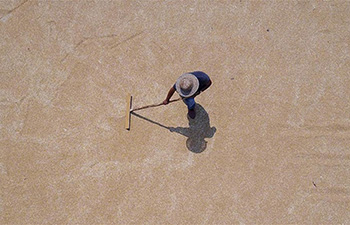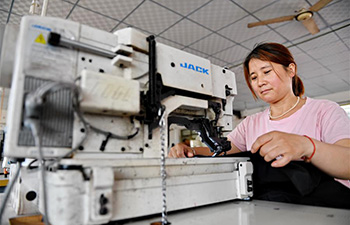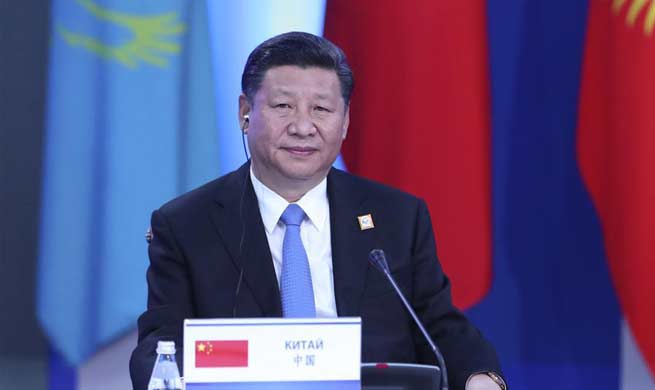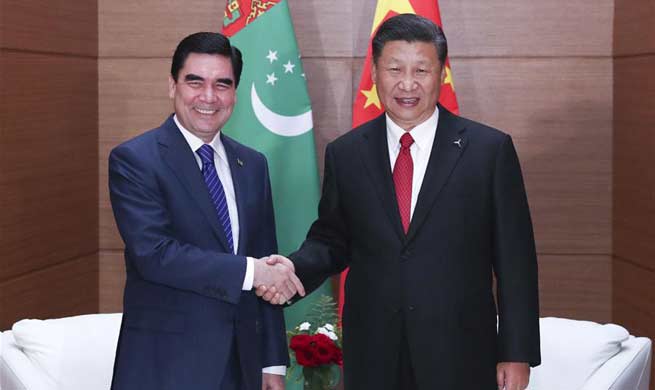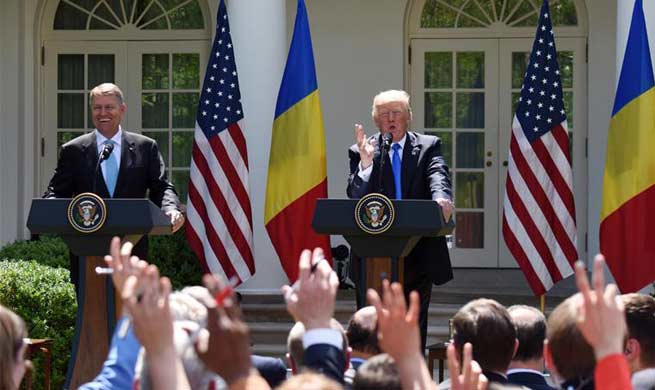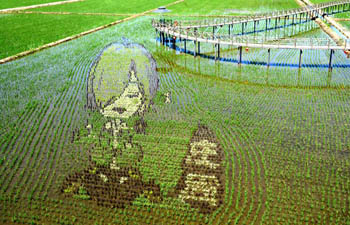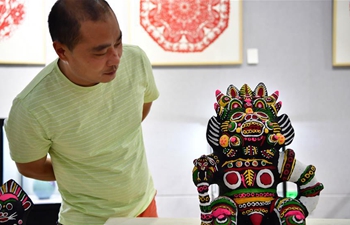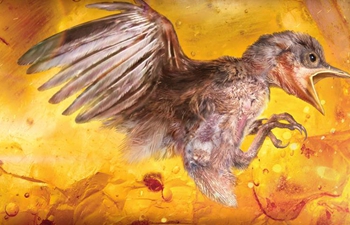BEIJING, June 9 (Xinhua) -- The rectangular device looks something like a flying hard drive as it rises into the air. Once launched it hovers behind its controller and follows him wherever he goes.
The Hover Camera Passport, is a selfie drone made by Beijing's Zero Zero Robotics, and one of the stars of the 20th China Beijing International High-tech Expo. It features face and body recognition, 360 degree panoramic recording and weighs only 242 grams.
"It has become the choice for selfie fans since it went on the market in October 2016," said the company's PR manager Wang Haihai.
Zero Zero Robotics is far from the only company at the expo bringing more autonomy to drones. The booth next-door is devoted to Dobby, a small white drone can be folded and slipped into your pocket.
Weighing only 199 grams, Dobby was created by Zero Tech. The pocket drone can be controlled by voice or gesture and folds up to about the size of an iPhone.
The overall market of unmanned aerial vehicles (UAVs), commonly known as drones, is expected to reach 75 billion yuan (around 11 billion U.S. dollars) by 2025 in China, according to an iResearch report last year.
The report predicted that aerial photography by drone will generate 30 billion yuan alone. The revenue from drones in agriculture, forestry, power inspections and security is expected to be about 40 billion yuan.
Skeptics pooh-pooh these emerging mini-drones as having low capacity batteries and being affected by the weather. Drones in general are more rightly criticized as intrusive devices. They may infringe privacy, threaten national security and are a risk to public safety, most notably in their potential to interfere with air traffic.
TAKE-DOWN
A counter-drone "gun" sits alone in the exhibition hall, staring menacingly at the Hover Camera Passport and Dobby buzzing about the booths directly opposite. The snappy slogan "guard for low-altitude security" is posted on the wall behind it.
"Our job is to interfere with the drones and protect our customers' territory," aid Chen Jinguang, a technician with Beijing's Quansheng Tech.
The gun interferes with the target drone's remote control and navigation system, more or less taking control of it and forcing it to land. If the drone is on autopilot mode, it is directed back to its starting point.
Founded in September 2016, the company is building a counter-drone system to prevent the intrusion of unmanned aircraft. In addition to the interference gun, the system includes sensors, detectors and jammers.
"Our potential customers are airports, sports venues, government agencies, restricted military areas, etc. All have security issues involving unauthorized drones," said Chen, who refused to discuss any time-frame for the mass production of company products.
HOW HIGH IS THE SKY?
While it is good to see drones used in agriculture, environmental monitoring and public entertainment, civilian drones have threatened the safety of civil aviation on many occasions.
In late April, four drones flown illegally over Chengdu Shuangliu International Airport in southwest China's Sichuan Province. They obliged 58 flights to land at alternative airports, four to return, and many more to be canceled.
China requires civilian drones weighing more than 250 grams to be registered under real names from June 1 to improve civil aviation safety. Registration of civilian drones is a common international practice.
There will be fines for the drone controller and temporary drone flying bans or suspended deliveries of drones on important occasions.
"In a vibrant drone market, laws, regulations, supervision and public awareness on safe flying lag far behind," said Zhang Yu, associate professor with the college of control science and engineering at Zhejiang University.
"Drone supervision should start with production and sales through use and ultimately scrapping, ensuring the industry develops smoothly, safely and sustainably," said Huang Wei, chairman of the supervisory committee with Chongqing Airport Group Co., Ltd.








